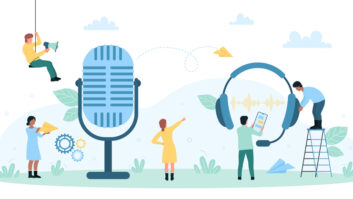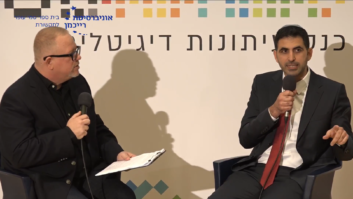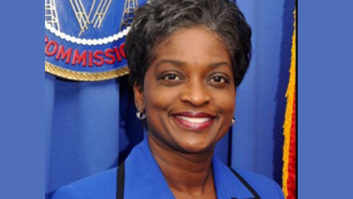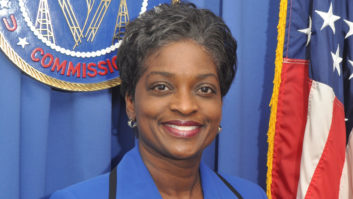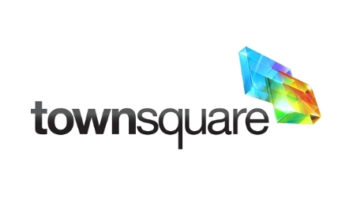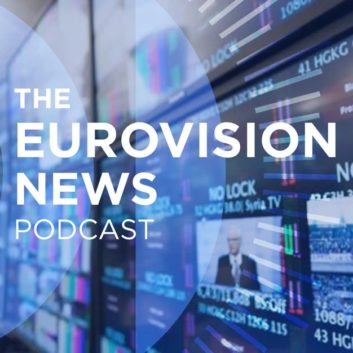 The author is senior news editor and head of the Eurovision News Exchange at the European Broadcasting Union.
The author is senior news editor and head of the Eurovision News Exchange at the European Broadcasting Union.
Let’s face it — there are too many podcasts for any of us to listen to in our combined lifetimes. This wasn’t always the case — far from it — but it is true now. And there are podcasts for every taste and style. So, the first thing anyone wanting to start a new podcast has to do is consider who their target audience might be and what they want to talk about.
My colleague Laurent Frat who came up with the idea for the Eurovision News Podcast felt he knew the answer to the first question.
“As an avid podcast listener, I could see the enormous potential for community building among our dozens of member news organizations and I really thought it was the right time to delve into the most pressing issues facing journalism and more specifically public service media like the European Broadcasting Union and its Members in the 21st century,” Laurent said.
I arrived at the EBU in March 2021, having worked as one of the presenters of the highly popular Global News Podcast at the BBC World Service. So, it’s no surprise I was, of course, thrilled when Laurent asked me to work alongside him and the podcast editor, Cathy Milner, to develop his idea. I jumped at the opportunity.
We immediately decided we’d make the first episode entirely about the issue of media freedom and the challenges faced by journalists coming up against autocratic rulers determined to silence them and conspiracy theorists who see the news media as part of everything that’s wrong with society. This was at the time when journalists in the U.S. and Europe were coming under attack on their own streets by demonstrators protesting against new COVID restrictions or the results of the 2020 U.S. elections.
[Read More Guest Commentaries Here]
So, we had cleared that first hurdle of what we wanted to talk about, but who would our target audience be?
From the start, we agreed this fledgling podcast of ours would be primarily directed at the wider EBU community and more specifically the dozens of member networks in Europe and elsewhere that are connected to the Eurovision News Exchange — a network of public-service newsrooms operating in over 50 countries and providing tens of thousands of news stories per year.
If you’ve watched the news in Europe this week or news about Europe either on TV or on your favorite news website — chances are that you will have come across at least one if not five or ten of our news items.
Yes, we are the people who gather and share the images that you see on the news from the tensions at the border between Belarus and Poland to the harrowing scenes of the Kabul airport after the Taliban takeover of Afghanistan to the proceedings at the COP26 climate summit in Glasgow, Scotland.
And, unlike traditional news agencies, we don’t usually commission and record that footage. Instead, we rely heavily on the news gathered and recorded by our member news organizations from ZDF in Germany to RAI in Italy to NOS in the Netherlands, RTVE in Spain, the BBC in the U.K. and France Televisions.
For 60 years now, they’ve been sending in their news items and in return they get the latest news — both live and recorded from the other members. It’s a genuine community of the largest newsrooms in Europe and the Mediterranean working together through us.
According to Laurent Frat, “In this challenging period for journalism it’s more critical than ever to build on and develop our already tight-knit EBU community, and it’s why we have made a point of featuring journalists and senior editorial figures from our member news organizations in every one of our episodes to date. As far as we are concerned The Eurovision News Podcast is just as much about them as it is about us.”
So far, we have produced four episodes of our new podcast and we are busy working on another two to conclude our first of what we hope will be many more seasons to come.
In this era of fake news and rising distrust in the news media we are determined to raise the curtain and go beyond the news stories to show our listeners the serious thinking, editorial rigor and determination that goes into producing and delivering the public service media news that we are proud to stand behind and call our own.
Radio World invites industry-oriented commentaries and responses. Send to Radio World.
